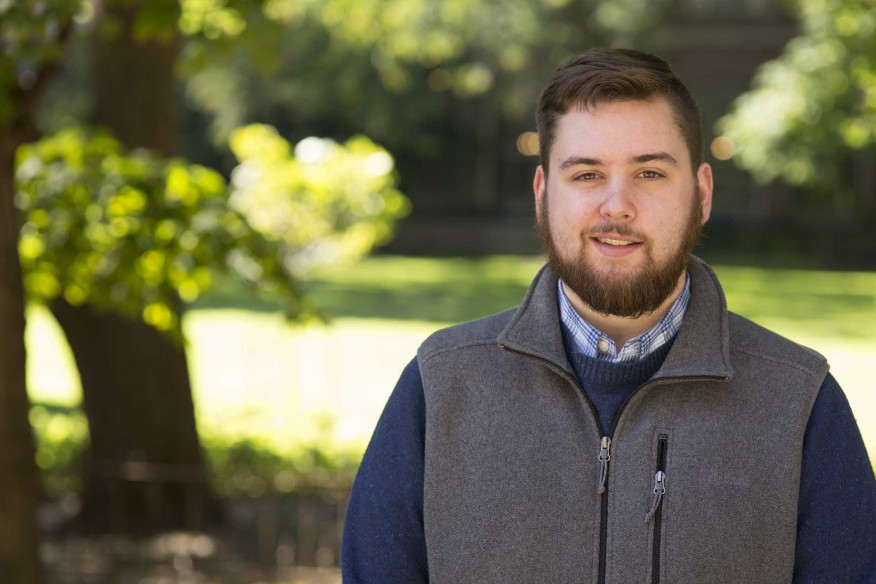-
Practice Method:Management of Health Systems
-
Practice Area:Children and Youth
-
Scholarship:School of Social Work Scholarship Fund
Sam Chamberlain left his family home in Lewiston, Maine at 15 and thus had his first contact with social services in the form of a teen transitional living program. A couple Sam knew became informal foster parents and saw him through high school, but no one addressed college with him. “In a panic I applied to one school,” Sam recalls, “the University of Southern Maine. I got in, and I studied leadership. I had been an advocate for homeless youth and volunteered with AmeriCorps, with immigrant and refugee youth in Lewiston. In the process, I had fallen in love with the operational and programmatic side of social work, not knowing it was a thing I could study.”
Indeed, it was.
Sam transferred to the University of Maine at Orono for a bachelor’s in social work, and then decided a master’s degree should be his next step. “When I searched for MSW programs,” he says, “the University of Michigan stood out with regard to social work as a management tool, as opposed to programs that addressed macro social work but not what it means to be a social worker in a leadership or administrative role.” Sam also had a professor at Orono, Elizabeth Armstrong, who had earned her MSW and PhD (joint with Sociology) from the U-M School of Social Work. She told him about “all the cool things happening at Michigan,” as he puts it. “And she solidified that the U-M School of Social Work was the place for me.”
Thanks to the School of Social Work Scholarship Fund, Sam was able to come. “As a previously homeless youth, access to higher education was difficult for me,” he says. “I don’t have the financial resources of my family, so I’m really thankful that the scholarship defrayed the cost of tuition. “Sam also earns money using his social work skills in an unusual way, as a bouncer at an Ann Arbor nightclub. “The skills I learned as a social worker are helpful,” he points out. “I am creating a safe environment, redirecting behaviors, holding conversations with people who may need to leave. It has been interesting work to have.”
Looking ahead, Sam says, “One day, I would like to play a role in the development and implementation of juvenile justice programs. I want to remain connected to the population I serve. I am definitely interested in on-the-ground work to implement programming to decrease the incarceration of juveniles.”
Looking over his journey so far, Sam has a message for the generous donors who support the School of Social Work Scholarship Fund. “The gifts you give have created an amazing student experience for me,” he says, “The dollars don’t allow just an educational experience for one person. They change the lives of all of the people that social worker will impact during their career.”
